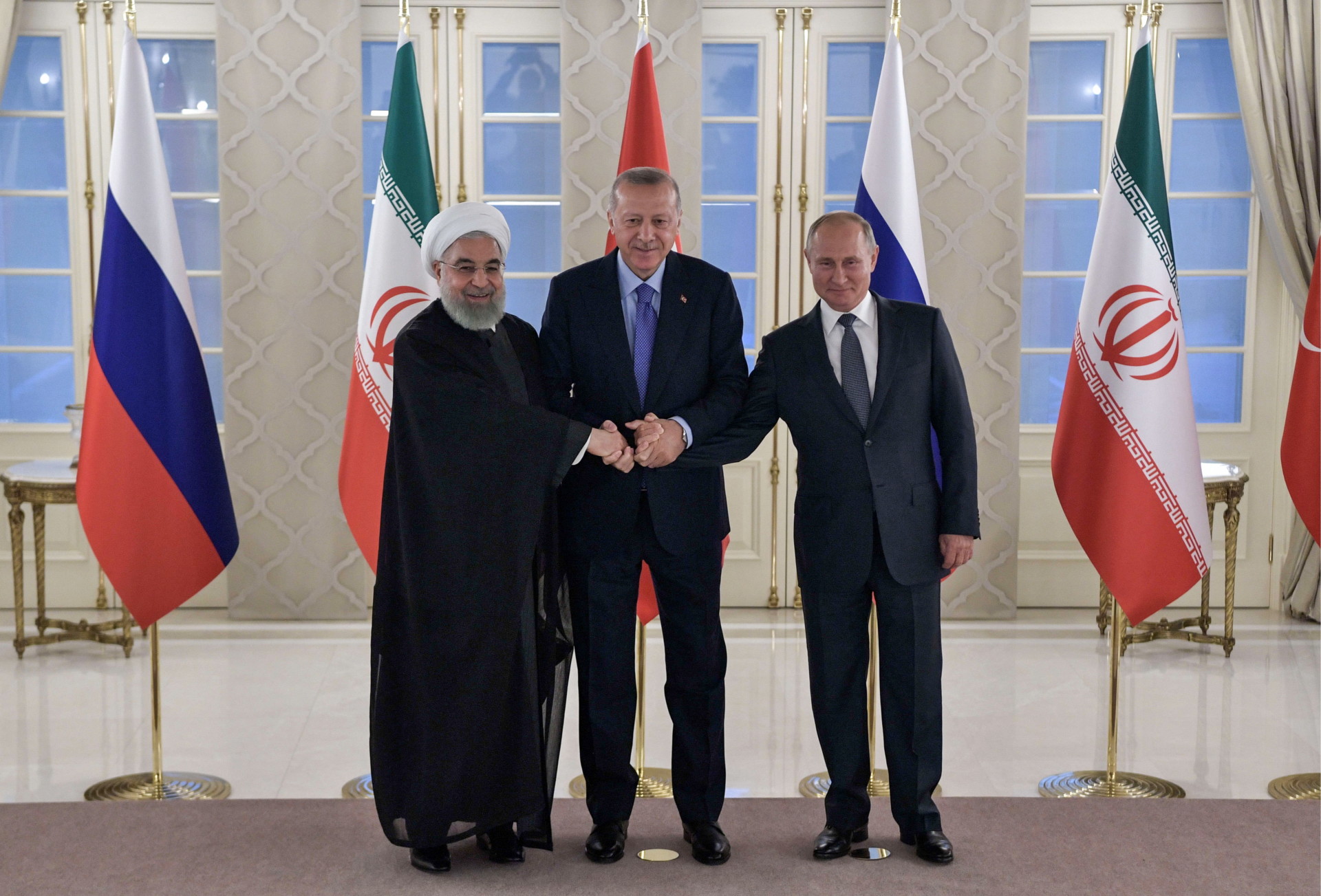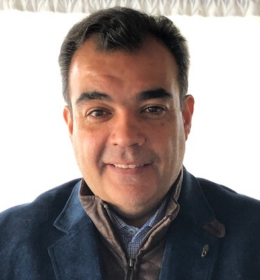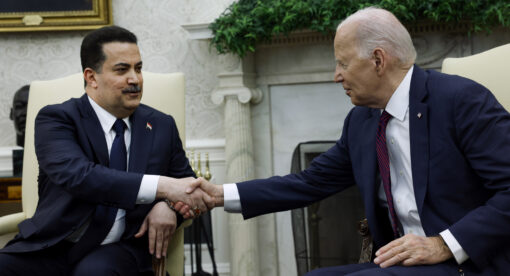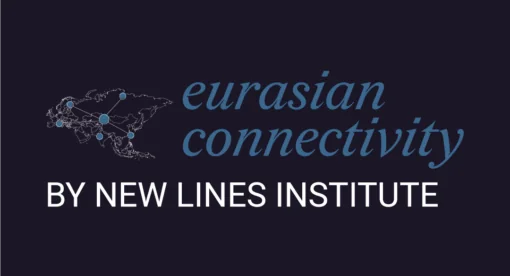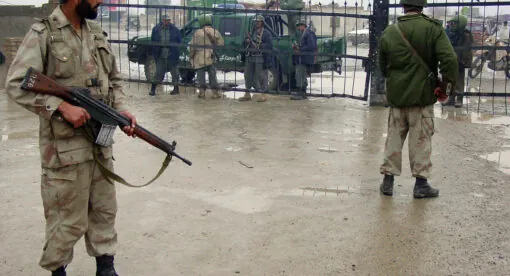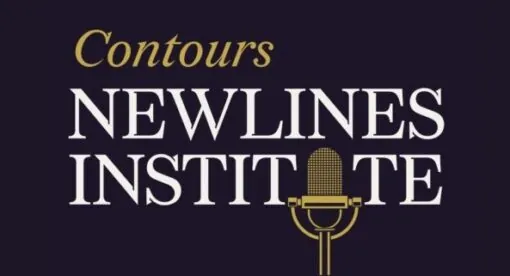At the start of the eleventh year of the Syrian conflict several efforts are underway to try and bring an end to the war in the Levant. Only those that take into consideration the interests of the various nations with a stake in a negotiated settlement have a chance of succeeding.
About two months ago Syrians and the international community commemorated the 10th anniversary of the outbreak of the Syrian revolution – a reminder of the massive atrocities committed by President Bashar al-Assad’s regime during the decade-old civil war. On this occasion several proposals were put forth to try and bring an end to the conflict, including the formation of a military council, inclusion of the political entities created by the Syrian opposition in the international negotiations, merging a group from the Astana Process into the Small Group on Syria to facilitate peace talks, and starting an international tribunal to hold the regime accountable for its use of chemical weapons.
Talks in Geneva among different Syrian factions, however, have failed to consider the various countries that have influence — and forces on the ground — in Syria. These international powers have widely divergent objectives and interests, and their involvement in the peace process will be key to ending the violence in the country.
The countries involved in Syria do have one thing in common: Their priorities have changed since the beginning of the crisis. Where once they focused on protecting or toppling the regime, they are now concerned with consolidating their military presence and solidifying their interests by creating areas of influence in Syria. These nations are benefiting from the weakness of both the regime and opposition and the fact that both are so dependent on outside support that they have become tools of the various state actors.

Russia
Russia hopes that a final resolution of the conflict will ensure its strengthened political influence and its continued military clout in Syria, including bases in Hmeimim and Tartus, as well as its continued presence in the Mediterranean and securing other concessions it has obtained from the Assad regime. Moscow also hopes that an end to the fighting will preserve state institutions, result in the lifting of sanctions, keep Syria undivided, and lead to the installation of a secular central government with armed forces capable of maintaining domestic security and fighting terrorist groups. The Russians want this to happen through a political transition, not by force. Such an approach would help the Kremlin show that there are methods for resolving international conflicts other than the Western approach. Moscow has an imperative to demonstrate that Washington’s strategy leads to failed states (such as Afghanistan and Iraq) and that Russia, unlike the U.S., backs its allies regardless of their actions and/or reputations. The most important aspect for Moscow is that Russian companies benefit from the reconstruction and have Russia’s debts paid off as the international community funds the reconstruction efforts.
No one could protect Russia’s interests in Syria except al-Assad, which partly explains why Moscow has continued to support him despite his crimes. However, regardless of what the future holds in Damascus, Russia has begun taking steps toward maintaining its influence in Syrian state institutions. For example, lower-ranking government officials and military officers are receiving training in Russia for their respective jobs.

Iran
Iran has had a presence in Syria since the early days after the uprising began in 2011, with the aim of protecting weapons supply routes from Iran to Hezbollah. This is crucial to Iran’s ability to keep Hezbollah as leverage, especially against Israel. Iran’s influence in Syria also helped Tehran in its nuclear negotiations with Washington. Syria is a critical component in Iran’s proxy strategy that helps it maintain access to the Mediterranean.

However, Iran is well aware that the Assad regime is weaker than it had anticipated. It is not lost upon Tehran that Damascus’ forces are collapsing at a dangerous pace. Having fought alongside their Syrian allies, the Iranians know of the large scale of military defections from the regime and how its legitimacy and public acceptance is all but gone.
At the same time, Washington has not been interested in countering Iran’s moves in Syria via a military intervention. Therefore, the Iranians were able to quickly establish its political and military centers of power across the country. Tehran mobilized tens of thousands of irregular forces from Iraq, Afghanistan, Lebanon, and Yemen. In addition, the Iranians dispatched troops from their own Islamic Revolutionary Guard Corps to fill the vacuum left by the weakening regime in the military, security services, and political sectors.
The Iranians have troops in in Qunaytirah and Daraa in southern Syria, which together with Hezbollah-controlled southern Lebanon represents a significant counter to Israel’s occupation of the Golan Heights. The Iranians also control the border crossings between Syria and Iraq. Moreover, they are planting loyalists in Syrian civil and military state organs in a way that ensures Iran’s influence and interests regardless of the nature and system of Syria’s future government. Hence, the Iranians are repeating the model they used in Lebanon and Iraq: A weak state dominated by their allied militias.
Turkey
Turkey’s priorities have changed several times since the beginning of the revolution to adapt to events it saw as unfavorable. Turkish officials believed that it was better to set up a buffer zone in northwestern Syria in 2013-2014 than to receive massive numbers of Syrian refugees. At one time they also believed it would be better to intervene militarily against ISIS in northeastern Syria instead of fighting the U.S.-backed Syrian Kurdish forces, which the Turks view as a grave threat to their national security. In the light of many domestic constraints and arrestors in its path to Syria, Ankara’s objectives changed from the more ambitious focus on Assad’s future and the nature of the regime to the more modest aim of containing the cross-border spillover of the chaos on its southern flank.
Turkey’s utmost priority in the foreseeable future, which any solution to the Syrian crisis should achieve, is keeping its military forces in Idlib following a compromise with the government in Syria, whatever form it may take. The aim of this Turkish task force is to ensure that conditions in Idlib do not worsen to the point where another wave of refugees pour across the Turkish border and that the jihadist rebel group Hayat Tahrir al-Shaam remains bottled up. Eventually, the Turks want to replace Hayat Tahrir al-Shaam’s leaders with their own loyalists, and they want to make sure that militias loyal to Turkey have a seat at the table when a future settlement is hashed out.
More importantly, the Turks want to get rid of the Kurdish Workers’ Party in northeastern Syria, even if military involvement is needed. Ankara also wants to see an estimated half a million Arabs from northeastern Syria return to their hometowns. Furthermore, Turkey wants to obtain Western support to encourage reconstruction in northern Syria to bolster safety and stability and to make sure Turkey’s Kurdish separatists do not enjoy sanctuary in the area.
Turkey’s relations with Russia developed throughout the Syrian crisis, creating a mechanism for communication with Moscow that had never existed before, which Ankara wants to continue to leverage. Despite the differences in their interests, the Turkish government believes it can manage relations with the Kremlin, especially given the lack of active conflict between the two sides. Likewise, the Turks, at this time, do not see the Iranian presence in Syria as a major problem, provided that Tehran’s actions do not undermine Ankara’s national security interests. Turkey also is flexible in terms of the type of future political system that emerges in Syria and on whether its forces should remain in the country, as long as it can achieve its objectives.

Israel
Israel had no official position on the Syrian crisis when it started. However, it quickly began closely monitoring the evolving situation, especially concerning the security of its border and the threat of a spillover of growing Iranian influence in Syria. Over the years, the Israelis have conducted multiple limited airstrikes on Iranian facilities in order to counter Tehran’s efforts at securing freedom of movement in Syria.
Earlier in the Syrian conflict Israel didn’t object to Hezbollah’s involvement in fighting alongside the regime or to the Lebanese Shia militia fighting Sunni terrorist groups, especially the Nusra Front, in northern Syria. The Israeli calculus was that this would weaken Hezbollah, distract its attention from southern Lebanon, and exhaust its capabilities. But these calculations were wrong.
The U.S.-Russian agreement in Daraa, known as the South Syria Deal, failed to deprive Hezbollah of the border areas with Syria. Iran pushed deeper into Syria, deploying sophisticated missiles. Hezbollah’s coordination between its ground forces and the Russian air force increased. It also used sophisticated weapons and new combat tactics, especially in street fighting.
Therefore, any future settlement will be acceptable to Israel if the U.S.-Russian agreement on the management of southern Syria is upheld, Iranian missiles are not present in Syria, and a future Syrian regime is not a client of Iran.
The United States
The Obama administration’s position on the Syrian crisis was affected by multiple factors. The most important of these were the United States’ unwillingness to get involved in a new war in the Middle East, the negotiations with Iran on the nuclear deal, and the desire to avoid the creation of another failed state in the region and the collapse of the regime without a genuine, moderate alternative. The Obama administration did not find anyone within the Syrian opposition who could provide such an alternative to the current regime.
After Russia intervened, the U.S. objective became letting the Russians get bogged down in Syria for as long as possible and avoiding responding to any of the Russian proposals for resolutions. There are two reasons for this. First, the U.S. saw Russian support for the Assad regime as preventing the country from becoming a bigger strategic vacuum than it already was. Second, Washington was happy to see Moscow entangled in Syria, even if the Syrian people are paying the price. Weakening Russia politically and militarily is a key Western strategic objective, and Syria is an arena for achieving this end.
The U.S. imposed multiple economic sanctions on the regime to pressure both it and Russia into accepting a political settlement that does not meet many Syrian interests.
With the war being waged against ISIS, the U.S. got involved in the fighting through non-governmental armed groups to which the U.S. provided military assistance. Their mistake in Syria was that they cooperated with an organization (the Kurdish-dominated Syrian Democratic Forces, or SDF) that the regime had been supporting for years against Turkey and that neither represented all local communities nor had a problem in working with the Assad regime.
This policy served U.S. counterterrorism interests in defeating ISIS but has been seen widely in Syria as overlooking the main conflict in the country and the popular demand for change – the original cause of the popular uprising in 2011.
The Gulf States
As with other countries in the region, the Gulf states changed their priorities between the start of the crisis and now, from changing the regime to fighting terrorism. The differences among the energy-rich Arab states shaped their respective views of the Syrian crisis.
The Iranian presence in Syria has become the biggest problem, and the Gulf countries differed on how to address it. They could not agree on whether preserving the Syrian regime is a way to contain Iran’s moves within Syria or whether Iran and the Assad regime represent a single camp and it therefore would be better to seek regime change. The Gulf states are also wary of supporting any opposition to the regime, having learned from Iraq that an opposition backed by outside parties does not necessarily lead to a reliable ally.
These countries tried supporting independent businessman and former prime minister Rafik al-Hariri in order to combat Iran’s clout in Lebanon during the 1990s. The result was al-Hariri’s assassination in 2005 by pro-Iranian forces. Hence, they favor change from within the regime, maintaining Syria’s state institutions, and reducing Iranian leverage to the lowest possible levels, or else they will not be concerned with funding or partaking in Syria’s reconstruction.
Europe
European countries are focused on blocking a second wave of Syrian refugees and potential terrorists from reaching their borders, as well as holding the Assad regime accountable for its crimes, especially its use of chemical weapons. If international resolutions on Syria are not implemented, these countries will not partake in its reconstruction.
The Way Forward
Without a real dialogue among these various countries with a huge stake in Syria, there will be no real resolution to the crisis.
The U.S. could lead the way toward bringing about an end to the conflict via an understanding with Iran and the continuation of its talks with Russia, followed by concrete steps to ensure the interests of each stakeholder in Syria. However, there are limits to what the U.S. can do, and compelling the Syrian regime and its supporters to accept a settlement will be very difficult, given that they were able to crush the armed rebellion. Regardless of the details of how the various actors come together and when, certain prerequisites will have to be met in order for Syria to move toward a post-conflict phase. These are as follows:
- The Constitutional Committee is debating one provision: the powers of the president of the republic. Most of these powers will have to be delegated to the prime minister or vice president, a proposal backed by a U.N. Security Council resolution.
- Russia must host the regime’s senior figures, including military and civilian officials and businessmen, whose continued presence undermines instability and distrust within Syrian society.
- Elections must be held according to a mechanism outlined by the Arab League in its initiative launched in 2013, itself in accordance with U.N. Resolution 2254, in the presence of Arab and international observers. Al-Assad will still have the right to partake in the elections after his powers are delegated to his vice president and after all the state’s senior officials leave.
- The military operations across Syria must be suspended. The army must return to its barracks, and all those who can be legally discharged should be dismissed from service.
- All the non-Syrian militias must withdraw within six months, a move backed by a U.N. Security Council resolution. This goes side by side with establishing a Syrian-international military council to oversee this process.
- Arab and Russian forces ought to be deployed across different parts of Syria to make sure the cease-fire is going into force, ensure there will be no collective revenge incidents, and maintain borders security.
- Members of the Syrian Democratic Forces can operate in their areas but need to be brought under the command of the Syrian army, in cooperation with the U.S. and Russian armies.
- All the government facilities must come back to the control of the Syrian state, and all employees must return to their official workplaces.
- Iranian experts and Turkish troops should remain stationed in known areas after agreement with the Syrian government to undertake specific missions for a specified period agreed upon by all parties.
- Cooperation between the Syrian army and the U.S. and Russian forces against ISIS must continue.
- All non-Syrian SDF commanders must leave Syria.
- There must be U.S.-Russian-Turkish cooperation to address the dominance of the Hayat Tahrir al-Shaam in northwestern Syria. Idlib residents must return to their homes, the Turkey-backed militias must be dissolved and integrated into the Syrian army, and the Syrian army must be allowed to enter Idlib.
- The vice president or prime minister, after being approved, must lead an interim government after all the military and political leaders leave for Russia.
- All political prisoners must be released.
- The interim government, called for by U.N. Resolution 2254, must be made up of representatives of the Syrian people and from all regions and must have a specific mission: implementing the rest of the measures in the resolution. U.N. Resolution 2254 calls for the creation of a transitional parliament, a temporary people’s assembly, an interim constitution, and then general elections.
- The new government must agree with Russia, Iran, Turkey, and the U.S. on a time frame for withdrawing forces but can decide if it wants to allow any foreign forces to remain in Syria for an extended period.
- A professional, non-political Syrian economic council must be established to set plans for reconstruction and determine priorities and needs.
- A Syrian council for returning displaced people must be established.
- Sanctions must be lifted, and an international Syrian body for reconstruction must be established.
- The army and security services must be rehabilitated, all local militias must be dissolved, and those who want to join and are deemed suitable must be included in Syria’s army.
Bassam Barabandi is the Co-Founder of People Demand Change and a former Non-Resident Fellow at the Newlines Institute. Previously, Mr. Barabandi served in the foreign service of the Syrian regime for 14 years during which he was posted to various Syrian diplomatic posts including Beijing, New York, and Washington. Since leaving the regime in 2013, he has written extensively on the Syrian conflict in Foreign Affairs, Foreign Policy, etc. and has been quoted extensively in the mainstream media. Follow him at @BASSAMVA.
The views expressed in this article are those of the author and not an official policy or position of the Newlines Institute.

